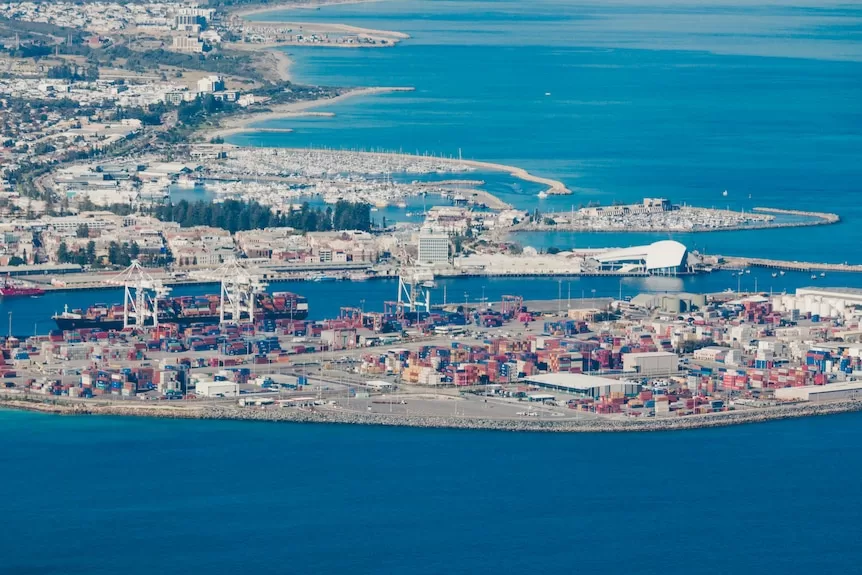After more than a month at sea, thousands of animals on board a live export ship off Western Australia’s coast are set to be allowed back on land during the coming week.
The MV Bahijah arrived off Australia’s coast almost two weeks ago, but has been stuck without a plan since then.
It’s a situation that has been criticised by animal welfare groups and farming lobbies.
How did this happen?
The MV Bahijah left Fremantle Port for Jordan, in the Middle East, on January 5.
It was destined to travel through the Red Sea, a crucial shipping route that has been the target of missile and drone attacks from Yemen’s Houthi rebels.
Seven days into the ship’s voyage, the exporter — Israel-based Bassem Dabbah — decided the Red Sea was too risky, and swerved onto a route all the way around Africa.
The long detour meant the ship needed to restock on fodder, medicine, and other supplies.
The exporter offered alternative contingency plans to get supplies from elsewhere.
The journey back home
The Department of Agriculture rejected the plan and instead ordered the ship to return to Australia on January 19.
“There was insufficient information to enable the department to issue approvals for alternative contingency markets, especially given the risks the delegate identified in respect of the nature and timing of the route,” a department spokesperson said.
The exporter applied to deploy on a 60-day voyage after restocking in Australia, but this was also rejected by the department.
The exporter went back to the drawing board and applied again, but this time it would take much longer for them to get an answer.
Meanwhile, MV Bahijah and its thousands of passengers arrived off the coast of Fremantle, south of Perth, on January 29.
Stuck off the coast with no plan, there was an uproar from the public about issues ranging from animal welfare, to allegations of incompetence from the industry.
“These sheep and cattle would have been standing in their own waste for the last 24 days,” RSPCA chief scientist Suzanne Fowler said at the time.
The department sent two independent veterinarians on board the ship on January 31. They found the “livestock appeared in very good condition”.
However, they also noted concerns about having the animals standing in their own waste for such a long period.
“Our only welfare concern would be possible impending issues should cattle pens in particular not be able to [be] washed in the coming days,” they wrote in their report.
Redeployment plan sparks legal action
Israeli animal welfare groups started to file legal proceedings to stop another voyage.
The groups Let the Animals Live and Animals Now filed for an injunction in Israel that could have prevented an import permit from being issued for MV Bahijah.
Those legal proceedings would delay any decisions from the department about the fate of the Bahijah, out of fear the ship would not be allowed into Israel.
There was a flurry of correspondence for days between the exporter, the department, and Israeli authorities.
What happens now?
Finally, on February 5 — a week after the ship arrived off WA’s coast — the department denied the Bahijah’s redeployment.
In the department’s statement of reasons, acting first assistant secretary Andrew McDonald said he couldn’t risk the ship being deployed to Israel, only to be stuck outside another port with no plan.
“The risk that the Israeli competent authority may not be able to grant the import permits or otherwise accept the livestock upon arrival, outweighed the detailed mitigation strategies that had been identified,” Mr McDonald wrote.
He said it was regrettable the whirlwind of information and developments meant he couldn’t make a decision earlier.
Finally, WA’s Premier Roger Cook on Sunday flagged the ship would be destocked during the next week or so.
But Mr Cook would not comment on whether the livestock would be processed in the state.
Loading
